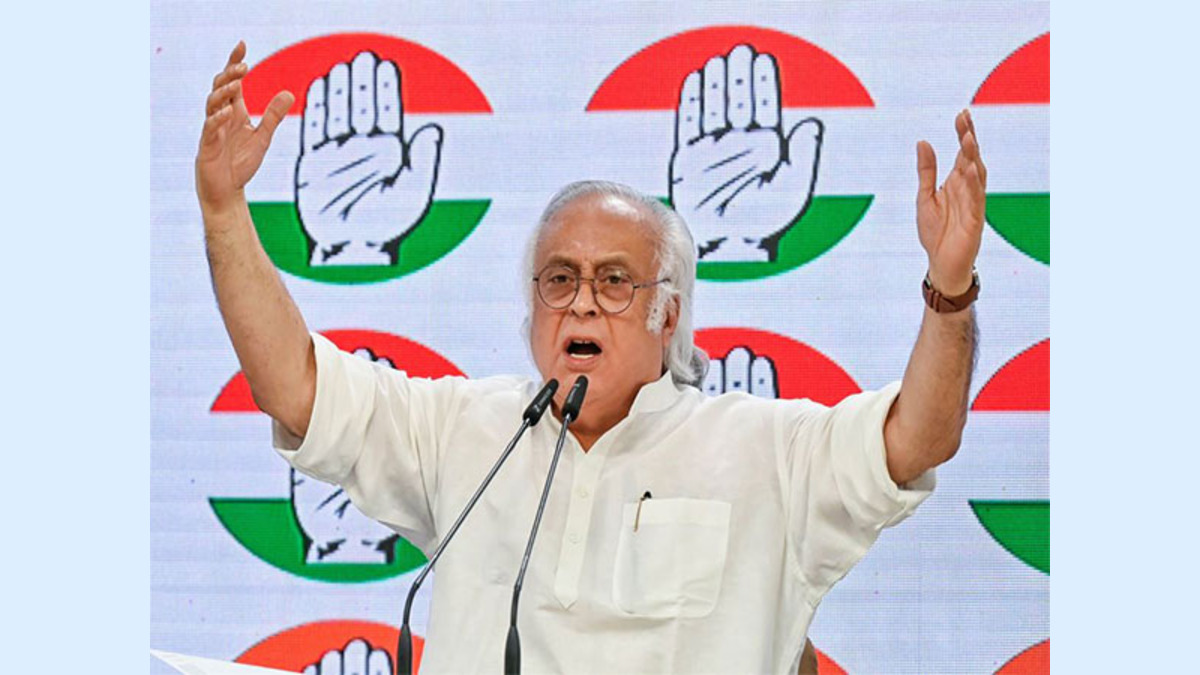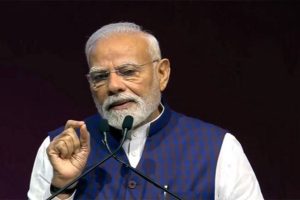Congress leader Jairam Ramesh on Wednesday launched a scathing attack on the Centre after the Trump administration’s 50 per cent tariff hike on Indian goods came into effect, warning of major setbacks for India’s labour-intensive exports.
Ramesh accused Prime Minister Narendra Modi of failing to safeguard national interests despite cultivating ties with former US President Donald Trump through high-profile events like Howdy Modi. “The Trump double tariff has come into effect. This will hit labour-intensive exports—textiles, gems & jewellery, leather, marine products, and engineering,” he said in a post on X.
Taking a swipe at Modi’s slogan Make India Great Again (MIGA), which was paired with Trump’s Make America Great Again (MAGA) during his US visit earlier this year, Ramesh remarked, “This Modi-made MEGA has now become a MAHA headache for India.”
The Congress leader also highlighted Washington’s growing scrutiny of the H-1B visa programme, which has overwhelmingly benefited Indian IT professionals. He noted that the US Commerce Secretary recently described the system as a “scam,” echoing sentiments popular within Trump’s political base.
Ramesh argued that Modi’s embrace of MAGA during his February visit has yielded no benefits for India. He also questioned Trump’s credibility, recalling the former President’s “30 claims” about stopping Operation Sindoor and his decision to host the Pakistani Army Chief despite links to the Pahalgam terror attacks.
TMC MP and Deputy Leader in Rajya Sabha, Sagarika Ghose, also held the government responsible for the economic fallout. “As #TariffsOnIndia kicks in, exporters across India are facing ruin. Textile units have stopped production, seafood exporters face slowdown, and crippling job cuts loom in the jewellery sector,” she wrote on X. “The Modi government is squarely responsible for failing to protect exporters from the crushing impact of #TrumpTariffs.”
The US Customs and Border Protection (CBP) confirmed the new duties under Executive Order 14329, effective August 27, covering all Indian products entering or withdrawn for consumption in the US.
The tariff shock is expected to hit India’s textile exports (12% of US-bound shipments), gems and jewellery (projected 15.3% decline), and shrimp exports (expected 20.2% drop). While India’s relatively lower tariff base compared to competitors like China and Vietnam may offer long-term resilience, the immediate fallout threatens jobs and export earnings.
To counter the impact, New Delhi is exploring fresh trade negotiations with the US, diversification of export markets, and strengthening domestic manufacturing through Make in India and PLI schemes.





